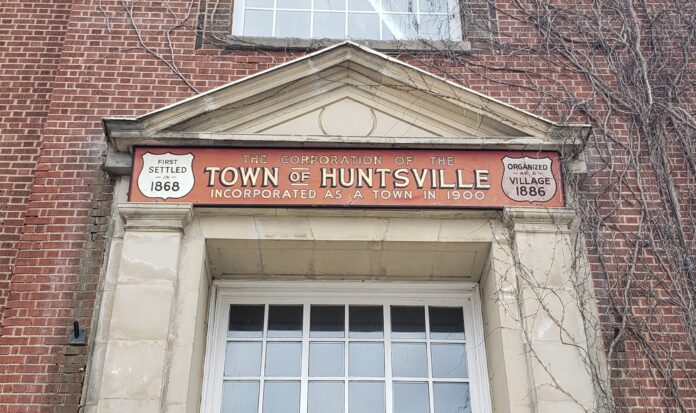Everyone agreed during Monday night’s Huntsville council meeting that Muskoka Algonquin Healthcare (MAHC) needs to get its hospital redevelopment project right the first time, but they disagreed on the path forward.
Bruce Kruger and Tony Vanderstelt with the Save South Muskoka Hospital Committee spoke during the meeting.
Kruger said there has been a sense of urgency from MAHC since they publicly revealed the “Made-in-Muskoka healthcare system” proposal in Jan. 2024, which he said was “drastically different” from the “status quo” model previously tabled. However, despite the change, Kruger explained how residents and, importantly, physicians, weren’t given enough time to digest the proposal, noting how MAHC suggested they – at the time – wanted to submit it to the Ministry of Health by March 2024.
The tentative submission date was pushed back with MAHC now hoping to submit its plan in the fall.
Kruger shared how the delay came after a statement from Parry Sound-Muskoka MPP Graydon Smith reassuring concerned residents that the funding from Infrastructure Ontario “is not going anywhere.”
“This is not a struggle between Bracebridge and Huntsville or the north versus the south,” added Kruger. “We want to get it straight for everyone in Muskoka and up in Almaguin.”
Coun. Bob Stone wondered who the committee is relying on for its information, pointing out they – like council – have limited knowledge of how to design hospitals. He added how the physicians have more expertise, but said they went to school to be doctors, not design hospitals. “Their information is anecdotal at best,” continued Stone. “Some gut feelings, perhaps, but they don’t design hospitals.”
“No more than councillors,” responded Kruger.
He said how the physicians know what they may or may not need at their workplace. “We are taking our guide from these physicians,” he added, noting their concerns about patient transfer, the uneven distribution of inpatient beds, and retention and recruitment of physicians.
“It doesn’t take a lot of education to know something is wrong here, in terms of being equitable,” concluded Kruger.
Dr. Melanie Mar and Dr. Deb Harrold were also part of the meeting with both agreeing with Stone about leaving the hospital design process to the experts.
“We need to think outside the box,” said Mar, adding how a “large group” of physicians is in favour of the proposal, contrasting the 51 in South Muskoka who don’t like what’s on the table.
She outlined how she’s heard three main points from those in favour of the model: the status quo model doesn’t work, they need to be innovative with how they handle the future of healthcare, and they must use the assets they have now – like a “core dedicated team” of medical professionals – to develop a good plan for all of Muskoka.
“How Dr. Harrold and I work today is not how we’ll work 10 years from now,” said Mar. She detailed how the current model won’t duplicate services between the two hospitals, which will support better care and recruitment.
While she understands some physicians are at odds with what’s being proposed, Mar said in her career she’s never seen a group of healthcare workers that are as collaborative as the ones in Muskoka.
“We all want the same goal for all Muskokans,” she said.
Karin Terziano, Claude Doughty, and Hugh Mackenzie, formers mayors of Huntsville, and the Township of Armour’s current Mayor Rod Ward, spoke after Kruger and Vanderstelt to express their solidarity with the current council’s decision to support MAHC’s plan.
“There’s never going to be 100 percent agreement on the model,” said Terziano.
She highlighted the importance of moving forward, noting how the conversation about the future of the hospitals in Bracebridge and Huntsville has been ongoing for decades. “I think it’s time to maybe leave the past in the past and move onto the future,” added Terziano.
Mackenzie said the promise of two equal, full-service hospitals is “as dead as yesterday’s news.”
He pointed out they have a nearly $1 billion investment to create “state of the art” hospital services locally but suggested it may not be on the table forever.
Mackenzie shared how he’s had to go to the Huntsville District Memorial Hospital seven times over the past handful of months for x-rays. He lives five minutes from the hospital now but, if MAHC’s proposal moves forward as it’s written, he would have to travel over half an hour to the South Muskoka Memorial Hospital in Bracebridge to the same service.
“Neither community is getting everything they want,” he said.
Ward shared his experience as part of the group who helped to develop the electronic health record systems in the late 90s and early 2000s.
“Every single healthcare provider was an island,” he remembered. “Every hospital was an island. Even the links between Bracebridge and Huntsville would have been rudimentary at best.”
Despite pushback and concerns about privacy, he said the group worked together and consulted with various groups and were able to put together a plan that made sense.
“If we’re fully entrenched based on what things look like today, this project is doomed to fail or be a huge waste of money,” he said, adding how he will be disappointed if what MAHC is proposing today is the same in 2032.
In a statement after the council meeting finished, Huntsville’s Mayor Nancy Alcock said the multi-site regional model goes “beyond bricks and mortar” and supports a sustainable healthcare system.
“We believe that this plan will provide the best possible healthcare services, not only for Huntsville residents, but for the entire catchment area,” she said. “Given the province’s initial funding commitment, we want to ensure we don’t miss out on the opportunity for a new multi-site regional hospital in Muskoka.”







